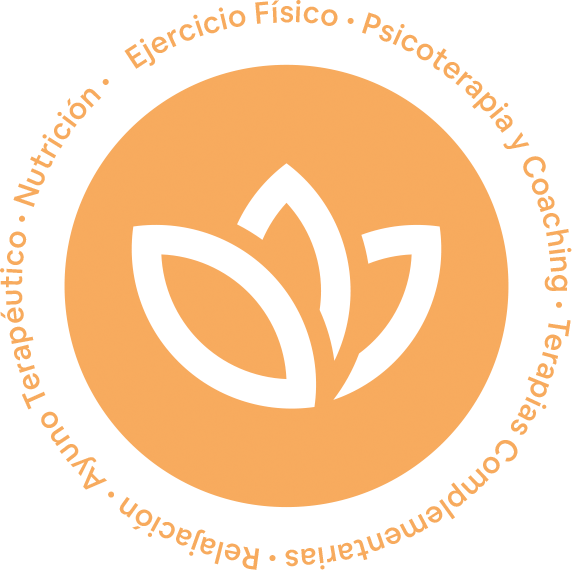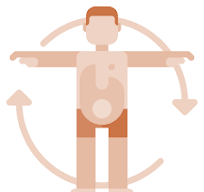
Science
The basis of our fasting method is that designed by Dr. Otto Buchinger (1878-1966), German, who experimented with fasting after curing his own diseases by a 19-day fast. Buchinger developed his method, which included water-based fasting, fruit liquefied and light broth, and became a benchmark in the field.
Development of the Buchinger method
Buchinger was not only satisfied with fasting in himself, but sought to complement this practice with other elements that promoted the integral health of individuals. Recognizing the importance of physical exercise, he incorporated gentle exercises in his fasting method. These physical activities were designed to be compatible with fasting status and focused on maintaining muscle mass and stimulating blood flow.
In addition, Buchinger understood the importance of mental and spiritual health during the fasting process. It introduced the practice of meditation and provided inspiring readings to help patients find a greater connection with themselves and cultivate a state of mind of calm and serenity. This combination of fasting, gentle exercise and meditation practices allowed individuals to experience a holistic approach to improving their physical, mental and emotional well-being.
Buchinger's approach quickly gained popularity in Europe and became a norm in the practice of therapeutic fasting. His method helped a large number of people looking to improve their health through fasting.

Scientific studies
From 1980 to the present, special attention has been paid to prolonged fasting as a promising therapeutic practice. Scientific studies have investigated the effects of prolonged fasting on a variety of health conditions.
Research has revealed that prolonged fasting can induce metabolic and hormonal changes that improve health. During fasting, the body exhausts its glucose reserves and starts burning stored fat for energy. This can result in a reduction in body weight, improved insulin sensitivity and reduced levels of inflammation.
In addition, prolonged fasting has been studied in the context of cancer treatment. It has been observed that prolonged fasting can increase the effectiveness of chemotherapy by making cancer cells more susceptible to treatments and protecting healthy cells. Prolonged fasting has also been shown to have positive effects on cardiovascular health, such as lowering blood pressure and cholesterol levels.
Our Concept
Thus is your MX Fasting, with the aim of preserving, promoting and restoring health.
To this end, we start from an integral concept that regards the body, mind and spirit as a unity. Therapeutic fasting and medical supervision are the central pillar. A conscious feeding, physical exercise and spiritual inspiration complete the program and contribute to the regeneration of the body and spirit, as well as exercise in nature, therapeutic and emotional accompaniment and body treatments.
Our comprehesive fasting program

Our comprehensive program is based on the Buchinger approach is a therapeutic fasting approach that combines water fasting and infusions with a minimum calorie intake from freshly prepared and blended vegetable broths of freshly squeezed fresh fruits. The goal is to recover and maintain quality of life, performance capacity and inner harmony.
The programme consists of:
- A light vegetarian diet a couple of days before arrival.
- On the first day, already at the chosen destination, we began the preparation phase accompanied by the supervision of a doctor, who carries out an evaluation to ensure that the program is indicated for each person.
- During fasting you refrain from eating solid foods and is limited to water and infusions that do not contain stimulants, such as tea. This allows the body to access its energy reserves and promote detoxification processes.
- Minimum calorie intake from vegetable broths and freshly prepared fruits and vegetables is allowed. It is important to emphasize that these liquefied have been devoid of all the fiber from the plants, preventing the body from initiating any process related to digestion. The aim is to provide the body with the vitamins and minerals necessary to maintain health and balance during fasting.
- In addition to fasting, during your stay you will have the option to choose complementary therapies, such as body or facial massages, relaxation treatments, etc. These therapies help to relieve stress and improve physical and mental well-being during the fasting process.
- After completing the fasting period, a post-fast period is already suggested back at home to ensure a safe transition to regular feeding and maintain the benefits achieved during fasting.

Retreats of fasting

7-day retreats
Backed by scientific knowledge about fasting, in Your FastingMX we offer the 7-day fasting retreat designed to maximize the benefits of this practice safely.
In addition, our program includes hiking, connecting coaching with your body and health and physical and emotional wellness workshops in incredible destinations surrounded by nature, specially chosen to live the experience of body, mind and soul well-being. We're waiting for you.
physiological effects of fasting
When we fast, our body goes through various physiological phases to adapt to the lack of food intake. These phases include:
GLUCOSA ACUMULED

(24-48 hours) During the first hours of fasting, our glucose levels stored in the liver are depleted. At this stage, our body changes its metabolism to use fat reserves as an energy source
CETOSIS

(72 hours) After exhausting glucose reserves, the body enters a metabolic state called ketosis. In this state, cells begin to break down stored fats to obtain energy, producing compounds called ketone bodies.
METABOLISM BASAL

In response to fasting, the body increases basal metabolism by using fats, waste substances stored in cells and releasing hormones such as adrenaline.
HORMESIS

Although this is not an effect of fasting itself, hórmesis implies an adaptive response of the body to a stress situation that, in turn, triggers mechanisms of adaptation and cellular repair.
Health benefits backed by science
Various studies support the potential health benefits of fasting. Here are some of these science-backed benefits:
- Weight loss and body composition: Prolonged fasting can be effective for weight loss and long-term maintenance of a healthy weight. By reducing calorie intake, fasting can promote an energy deficit and the use of the body's fat reserves.
- Improved insulin sensitivity and prevention of metabolic diseases: Fasting has been shown to improve insulin sensitivity and regulate blood glucose levels. This can help in the prevention and management of metabolic diseases, such as type 2 diabetes.
- Reducing inflammation and oxidative stress: Fasting can have anti-inflammatory and antioxidant effects on the body. These effects can help reduce chronic inflammation and oxidative stress, factors involved in the development of chronic diseases such as cardiovascular disease, diabetes and cancer.
- Improved cognitive function and brain protection: Fasting has been associated with improved cognitive function and protection against neurodegenerative diseases, such as Alzheimer's and Parkinson's. Some studies suggest that fasting promotes the production of proteins that protects brain cells and stimulates cognitive function.
- Cardiovascular benefits: Fasting can help reduce cardiovascular risk factors such as LDL cholesterol and blood pressure., These positive effects on cardiovascular health can have important implications for the prevention of heart disease.
- Charity effects on cancer treatment: Preliminary studies suggest that fasting can help improve the effectiveness of chemotherapy and reduce associated side effects. In addition, fasting can have been observed to have antitumor effects and promote the apoptosis of cancer cells.
What does science say about the psychological benefits of fasting?
Therapeutic fasting has been shown to offer a range of psychological benefits supported by science such as the following:
- Improved mood: Several studies have found that therapeutic fasting can improve mood and reduce symptoms of depression and anxiety. This may be due to the release of endorphins and other neurotransmitters that promote feelings of well-being and calm.
- Increased mental clarity: Many people report greater mental clarity and increased concentration during therapeutic fasting. This may be related to increased levels of BDNF (brain-derived neurotrophic factor), a key protein for brain health and neuronal plasticity.


- Stress reduction Therapeutic fasting can help reduce stress levels. Fasting has been observed to stimulate the production of wellness hormonessuch as melatonin and nerve growth factor, which can counteract the negative effects of chronic stress on the brain.
- Promotion of self-discipline and self-improvement: Therapeutic fast implies a conscious willingness and discipline to refrain from food intake for a certain period of time. This practice can strengthen self-discipline and foster the sense of personal achievement, which can have a positive impact on confidence and self-esteem.
- Connection mind-body: Therapeutic fast can help to develop a greater awareness of the body's internal signals and improve the mind-body connection. By being more attentive to physical and emotional sensations during fasting, people can learn to listen and respond to their body's needs more effectively.
Let's get up.
What would it take for therapeutic fasting to be part of our day-to-day life?
What would it take for us to choose therapeutic fasting as prevention, rather than the healing of diseases?
How much would our mind-spirit-body benefit if we choose therapeutic fasting as a lifestyle?
How would it also be to extend knowledge of the benefits of fasting to everyone?
It is very important to point out the following.
Fasting is not a fashion.
Although in recent times social networks and many celebrities have fostered the popularity of fasting, this is a practice that has been carried out, from a scientific dimension, at least since the end of the 19th century, thus counting on a remarkable baggage of medical knowledge that supports its safety and effectiveness to alleviate various imbalances in the body and improve the quality of life of the people who practice it.
Fasting is a safe practice.
Today, science has not shown that fasting, as long as it is supervised by professionals, has negative health effects. Negative effects have not been reported on specific population groups, such as elderly people or people with metabolic or food-related diseases.
Fasting offers many benefits.
Fasting can relieve imbalances such as overweight, conditions derived from insulin insensitivity such as diabetes and, in general, improve the quality of life of patients affected by food-related diseases. In healthy people, fasting helps prevent this type of ailments and, in addition, provides various physical and psychological benefits.
The Buchinger Method.
While there are various approaches to fasting, the Buchinger Method has been welcomed for its respectful, holistic and complemented approach with activities that aim to strengthen and purify our body-mind-spirit.
Fasting, the healing therapy of the future.
Researchers from all over the world continue to explore the benefits of prolonged fasting and its application under certain medical conditions, including in synergy with pharmacological treatments. In this way, little by little, fasting is constituted as a therapeutic tool whose applications can increase in the future, as we gain a deeper knowledge of its mechanisms and effects on the body.
Below, we provide references to scientific literature that supports the benefits of fasting. Although it originally is a practice with a strong spiritual component, in recent decades fasting has attracted the attention of the medical and scientific community, with studies proving the health benefits of this practice:
Body rejuvenation, anti-aging action and brain regeneration:
- “Health effects of intermittent fasting: hormesis or harm? A systematic review” Am J Clin Nutr. 2015 Aug;102(2):464-70. doi: 10.3945/ajcn.115.109553. Epub 2015 Jul 1.
- “Promoting health and longevity through diet: from model organisms to humans” Cell. 2015 Mar 26;161(1):106-118. doi: 10.1016/j.cell.2015.02.020.
- “Lifelong brain health is a lifelong challenge: from evolutionary principles to empirical evidence” Ageing Res Rev. 2015 Mar;20:37-45. doi: 10.1016/j.arr.2014.12.011. Epub 2015 Jan 7.
- “Genetic Activation of Nrf2 Protects against Fasting-Induced Oxidative Stress in Livers of Mice” PLoS One. 2013; 8(3): e59122. PMCID: PMC3601109 PMID: 23527105 Published online 2013 Mar 18. doi: [10.1371/journal.pone.0059122]
Reduction of inflammation and pain
- “Interleukin-6, C-reactive protein and biochemical parameters during prolonged intermittent fasting” Ann Nutr Metab. 2007;51(1):88-95. Epub 2007 Mar 19.
- “Intermittent fasting could ameliorate cognitive function against distress by regulation of inflammatory response pathway” J Adv Res. 2017 Nov;8(6):697-701. doi: 10.1016/j.jare.2017.09.002. Epub 2017 Sep 13.
Improved mood
- “Caloric restriction preserves memory and reduces anxiety of aging mice with early enhancement of neurovascular functions” Aging (Albany NY). 2016 Nov 8;8(11):2814-2826. doi: 10.18632/aging.101094.
Reduction of metabolic risk factors
- “Intermittent fasting and human metabolic health” J Acad Nutr Diet. 2015 Aug; 115(8): 1203–1212. Published online 2015 Apr 6. doi: [10.1016/j.jand.2015.02.018] PMCID: PMC4516560 NIHMSID: NIHMS663671 PMID: 25857868
Fasting and its benefits for diabetes mellitus
- “Early Time-Restricted Feeding Improves Insulin Sensitivity, Blood Pressure, and Oxidative StressEven without Weight Loss in Men with Prediabetes.” Cell Metab. 2018 Jun 5;27(6):1212-1221.e3. doi: 10.1016/j.cmet.2018.04.010. Epub 2018 May 10.
Fasting and hypercholesterolemia
- “Short-term modified alternate-day fasting: a novel dietary strategy for weight loss and cardioprotection in obese adults” Am J Clin Nutr. 2009 Nov;90(5):1138-43. doi: 10.3945/ajcn.2009.28380. Epub 2009 Sep 30.
- “Randomized cross-over trial of short-term water-only fasting: metabolic and cardiovascular consequences” Nutr Metab Cardiovasc Dis. 2013 Nov;23(11):1050-7. doi: 10.1016/j.numecd.2012.09.007. Epub 2012 Dec 7.
Fasting and high blood pressure
- “Early Time-Restricted Feeding Improves Insulin Sensitivity, Blood Pressure, and Oxidative Stress Even without Weight Loss in Men with Prediabetes” Cell Metab. 2018 Jun 5;27(6):1212-1221.e3. doi: 10.1016/j.cmet.2018.04.010. Epub 2018 May 10.
Obesity
- “Intermittent Fasting Promotes White Adipose Browning and Decreases Obesity by Shaping the Gut Microbiota” Cell Metab. 2017 Oct 3;26(4):672-685.e4. doi: 10.1016/j.cmet.2017.08.019. Epub 2017 Sep 14.
Hormonal regulation and female fertility
- “The Deep Correlation between Energy Metabolism and Reproduction: A View on the Effects of Nutrition for Women Fertility” Nutrients. 2016 Feb 11;8(2):87. doi: 10.3390/nu8020087.
- “Pre-pubertal diet restriction reduces reactive oxygen species and restores fertility in male WNIN/Obese rat” Andrologia. 2018 Mar;50(2). doi: 10.1111/and.12849. Epub 2017 Jul 18.
Fasting and physical performance
- “Time-restricted feeding in young men performing resistance training: A randomized controlled trial” Eur J Sport Sci. 2017 Mar;17(2):200-207. doi: 10.1080/17461391.2016.1223173. Epub 2016 Aug 22.
Beneficial synergies with other treatments
- “Fasting and cancer: molecular mechanisms and clinical application” Nat Rev Cancer. 2018 Nov;18(11):707-719. doi: 10.1038/s41568-018-0061-0.
- “When less may be more: calorie restriction and response to cancer therapy» BMC Med. 2017 May 24;15(1):106. doi: 10.1186/s12916-017-0873-x.
